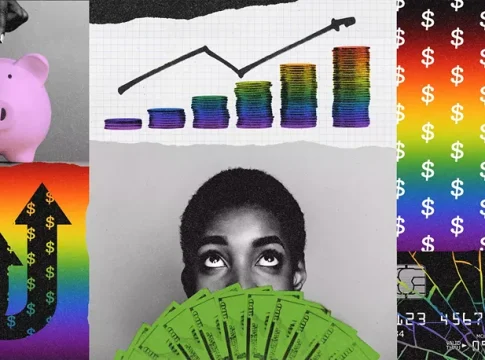Navigating Personal Finance in Uncertain Times
Money can be daunting, especially amidst current societal upheavals. Balancing the quest for financial stability with the nagging fear of economic collapse can feel overwhelming. But regardless of where you stand on that spectrum, understanding some key financial principles can empower you to take control of your finances without shame or anxiety.
Understanding Your Relationship with Money
Firstly, it’s essential to acknowledge that many people struggle with financial literacy. Just because someone seems confident doesn’t mean they truly grasp their financial situation. Often, we see trends like cryptocurrency investments or credit card debt spiraling out of control, leaving many wondering how to navigate the financial landscape.
What Brings You Joy?
When thinking about money, consider what genuinely makes you happy. Ask yourself:
- What are 3-5 things that bring you joy?
- What values or causes are important to you?
These reflections can guide your spending and help align your financial decisions with your core values, leading to a more fulfilling life.
The Importance of Budgeting
Begin with a simple, transparent budget.
Track Your Income and Expenses
Understanding how much you earn and spend is the bedrock of any financial plan. Gather pay stubs and bank statements for at least three months to get a clear picture.
- Identify fixed costs (like rent and utilities) and variable expenses (like dining out).
Once you have this data, evaluate whether your spending aligns with your values. For example, if supporting local businesses is crucial to you, consider cooking at home but treating yourself to a meal at a local café once a month instead of taking frequent rides with a rideshare service.
The Power of Compound Interest
Don’t overlook compound interest; it can be the most powerful tool in your financial arsenal. Simply put, it’s the process where your earnings generate more earnings. For instance, if $1,000 is invested at a 10% annual return, after ten years, it could grow to about $2,593. The key takeaway here?
- Start investing early. The sooner you leverage this, the more your money can multiply.
Conversely, carrying high-interest debt—like credit card balances—can have a disastrous impact. If you let $5,000 in debt sit at a 24% interest rate, it could balloon to over $50,000 in ten years. Understanding how compound interest works on both sides can save you from a financial pitfall.
Building an Emergency Fund
An emergency fund is your safety net. Aim to save three to six months’ worth of living expenses. This isn’t a go-to vacation fund but a financial cushion for unexpected bills or job loss.
Invest Wisely
Once you’ve eliminated high-interest debt and have savings, consider investing.
- Look into low-cost index funds, which offer diversification by spreading your money across many companies.
These funds are designed to grow steadily over time, minimizing the risks associated with investing in individual stocks.
Retirement Accounts
Take advantage of tax-advantaged retirement accounts like a 401(k) or IRA. These accounts make investing easier and often come with tax benefits.
The Value of Giving Back
Finally, remember the importance of community. Consider donating a portion of your income to causes you care about, even if it’s just 1%. Making a difference in others’ lives can enrich your own.
Conclusion
Mastering personal finance is not just about numbers; it’s about aligning financial choices with your life’s aspirations. By budgeting, understanding debt, and strategically investing, you can build a secure future even in these unpredictable times.

Writes about personal finance, side hustles, gadgets, and tech innovation.
Bio: Priya specializes in making complex financial and tech topics easy to digest, with experience in fintech and consumer reviews.

